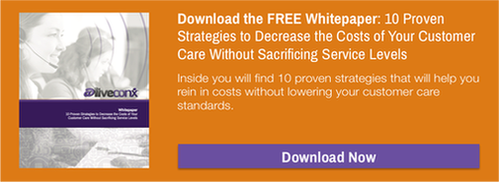Socializing Homecare: Client Satisfaction Using Social Media
When it comes to client care, few outreach options can match the accessibility and ease of social media.
Social media has taken the world by storm; why should the healthcare field be any different?
Home and healthcare organizations have already begun utilizing client service centres to provide more efficient care for their clients, but succeeding with these initiatives is often easier said than done. Meeting the needs of homecare clients sometimes requires a different type of outreach than the basic phone and email support that define most client service centres.
Generally speaking, customer service across any industry boils down to three concepts:
- How much effort will solving the problem take/how long will it take?
- Will it be solved completely or will issues arise?
- What kind of experience will I have with customer service?
Social media care is a unique type of communication channel that allows clients and their caregivers to help themselves, receive a quick informal response, offer great user flexibility, and gather the information necessary to personalize the user experience. Social media can address all three of these client pain points while keeping your phone lines clear for more complex issues or requests.
Self-Service
While data compiled by Go-Gulf found that better customer service support was one of the top five reasons that consumers follow a brand on social media, there’s no denying that social media can easily be leveraged into a self-service outreach option that allows users to help themselves.
Social media self-service includes accessing medical and how-to resources posted on their homecare provider’s Facebook page. Social media offers a diverse array of tools to educate and connect users together, empowering them to find options on their own and increase the flexibility of their care. Research by Aberdeen via CRMBuyer showed that this flexibility can have a huge impact on customer satisfaction—rather than their counterparts who focused their goals on cost-reduction, self-service based customer care increased customer satisfaction by 65 percent, first call close rates by 58 percent, and customer retention by 39 percent. These numbers should continue to increase. As baby boomers continue to enter the homecare demographic, they will bring with them (along with their caregivers) a social media literacy rate far higher than this demographic has ever seen.
The Right Platform
One of the great things about social media is its versatility. Social media platforms can be accessed from any location with any type of device, making it the perfect option for home and healthcare clients who may have a hard time getting around.
Part of delivering social media customer service is knowing what platforms your client base prefers. Delivering comprehensive service via Google+ won’t do you much good if all of your clients are active on Facebook. You must also consider platform restrictions: it’s hard to resolve a complex client inquiry with the brief 140 character count of Twitter, for example. The ideal social platform will be one that is accessible for your clients and facilitates easy communication between client, caregiver, and provider when problems arise.
Remember, the 24/7 instant-access nature of social media cuts both ways—it’s accessible at any time of the day, but your users won’t be willing to wait forever for their response. Constant access creates the need for constant service; ideally, your client service representatives will make first contact within an hour of the initial complaint. Any longer, and your clients may grow frustrated with your service.
Social CRM
Efficiency and safety aren’t the only goals of your social client care. You must also provide an exceptional experience that gives your clients confidence and faith in their homecare provider.
Growing your client base may also be a goal. For many people looking for a homecare provider, an internet search is often the first type of research they will do. A website with robust ‘Contact Us’ options and two-way social media engagement gives potential clients a positive first impression of how invested you are in delivering service across your communications channels.
The CRM systems used in your client support centre can be used to improve your client’s experience when handling inquiries. This process involves data collection across every social media touchpoint to gain a better understanding of their previous experiences and expectations for the future. This information empowers your service representatives with the flexibility they need to deliver the personalized service that takes the effort out of the client experience.
Socializing Care
Social media may be the ideal outreach option for home and healthcare clients. Its accessible nature makes it easy for clients of many physical ability levels to use, and social media platforms are often designed with simplicity and the user experience in mind.
To get the most out of your social media outreach, make sure you’re utilizing the channels your clients are already subscribed to, and use your CRM to gather information accordingly. When your clients and their caregivers can instantly access care and personalized support across their preferred channel, the effort of their care is reduced and a better overall healthcare environment is built. Want to learn more about the benefits of social media for healthcare support? Check out our free white paper!










